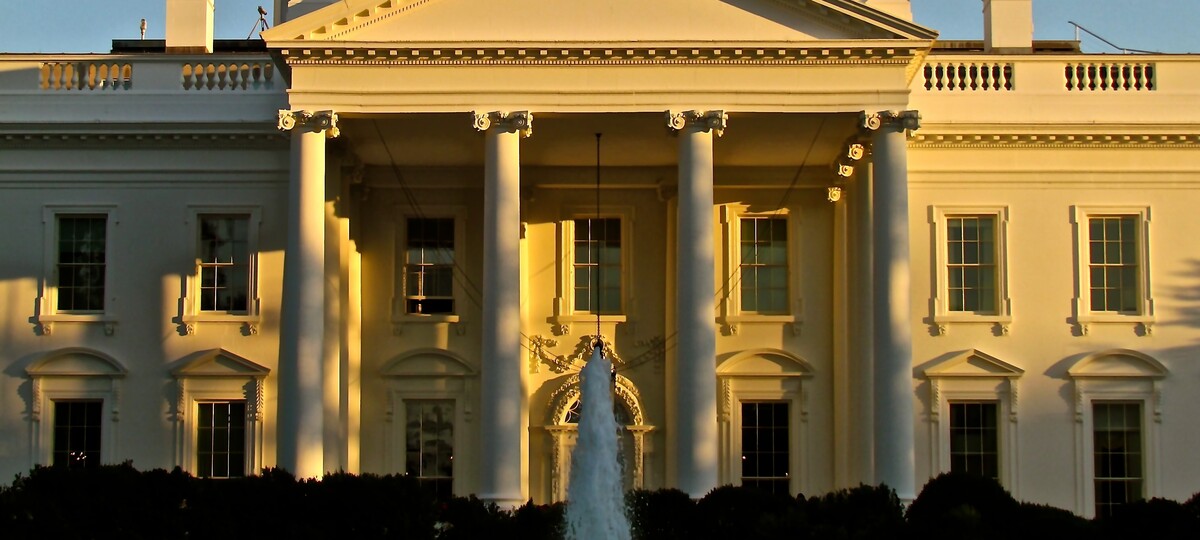
At a time when voters have rejected the party of the incumbent president in the last two elections, and in which current polling has the incumbent trailing, both parties seem bent on nominating two men who have served as president and about whom substantial majorities of voters have negative feelings. What gives?
You could argue that each party is trying to manipulate the other into nominating a candidate whose liabilities are well known to the public. Certainly, Democrats' prosecutions of Donald Trump have had that effect.
As I noted in a November column, Trump led Gov. Ron DeSantis (R-Fla.) by only 15 points when Manhattan prosecutor Alvin Bragg handed down an obviously flimsy indictment on March 30. Within three weeks, Trump's lead over DeSantis doubled to 32 points, on its way to its current 51 points.
The obvious political motivation of these indictments — and of the Colorado Supreme Court's exclusion of Trump from state ballots — has boomeranged (or intentionally) helped Trump. Meanwhile, Republicans' apparent gains among black voters have deterred most Democrats from any thoughts of jettisoning Joe Biden and his similarly unpopular vice president.
This is not the first time voters have been rejecting incumbents. In a dozen years, four incumbents were ousted — Lyndon Johnson in 1968, Richard Nixon in 1974, Gerald Ford in 1976 and Jimmy Carter in 1980. One reason was broken promises: LBJ campaigned as a peace candidate and made war in Vietnam. Nixon campaigned on law and order and violated the law. Ford introduced himself as a healer and pardoned Nixon, and Carter campaigned as an outsider and defended insider economic and arms control policies.
Hovering over all four, increasingly over the period, was inflation, just as the inflation apparently resulting from 2021 COVID legislation is hurting Biden today. It's visible now, as it was then, in the signs most people, but not Manhattanites or town house liberals, are confronted with every week: gas prices.
In this century, voters have rejected incumbent parties, but by narrower margins. Al Gore lost narrowly in 2000, John McCain by more in 2008, Hillary Clinton even while winning the popular vote in 2016, and Trump in 2020. George W. Bush and Barack Obama were reelected in 2004 and 2012, but with just 51% of the popular vote.
The 1968-80 period was more volatile, with much bigger swings in party percentages, because the bulk of the electorate then had living memories of the 1930s Depression and World War II. They were willing to cross party lines to reelect presidents who seemed to produce prosperity and peace, and to cross them the other way to reject those who didn't, or broke promises or brooked inflation.
Without such memories, voters in recent decades have mostly stuck to parties that reflect their deeply held cultural values, and so neither party wins landslides. The perverse result is that presidents and congressional leaders have been reluctant to compromise on major issues, because they plausibly hope to win a trifecta — the White House and majorities in the Senate and House — in the next presidential year.
Bush won trifectas narrowly in 2000 and 2004, Obama by a wider margin in 2008 but not in 2012, and Trump and Biden narrowly in 2016 and 2020. Obama failed in 2012 because he ran against Mitt Romney as a callous plutocrat, a tactic that didn't unseat demotic tea party House Republicans.
In this cycle, both parties have some reason to hope for a trifecta, reasons strong enough for primary voters to stay loyal to their most recent president. It's not certain that Biden will lose to Trump; it seems possible that Republicans will manage to once again blow a clear chance at a Senate majority, and it's certainly not clear which party will win the House. That may depend on whether New York's Democratic legislature produces a redistricting plan even more egregiously partisan than North Carolina's Republican legislature's.
Changes in the current close partisan divisions tend, sooner or later, to offset each other. Affluent college graduates have become more Democratic — a process begun in the Northeast, West Coast and Chicagoland in the 1990s, increasing countercyclically in 2004 in Pennsylvania and Michigan, and winding up with metro Atlanta and metro Phoenix swinging Democratic in 2020.
Offsetting this, Hispanics and black people without a college degree have been trending at least a little more Republican than before — a process begun in George W. Bush's Texas in the 1990s, delayed by the Obama candidacy but continuing countercyclically (and unnoticed by most of the political press) in 2020, and threatening to crescendo against Biden in 2024. Causes favored by voters moving toward Democrats have repelled others now moving toward Republicans.
The result is an election with an unpredictable outcome that will surely leave most people convinced the country is on the wrong track.


 Contact The Editor
Contact The Editor
 Articles By This Author
Articles By This Author